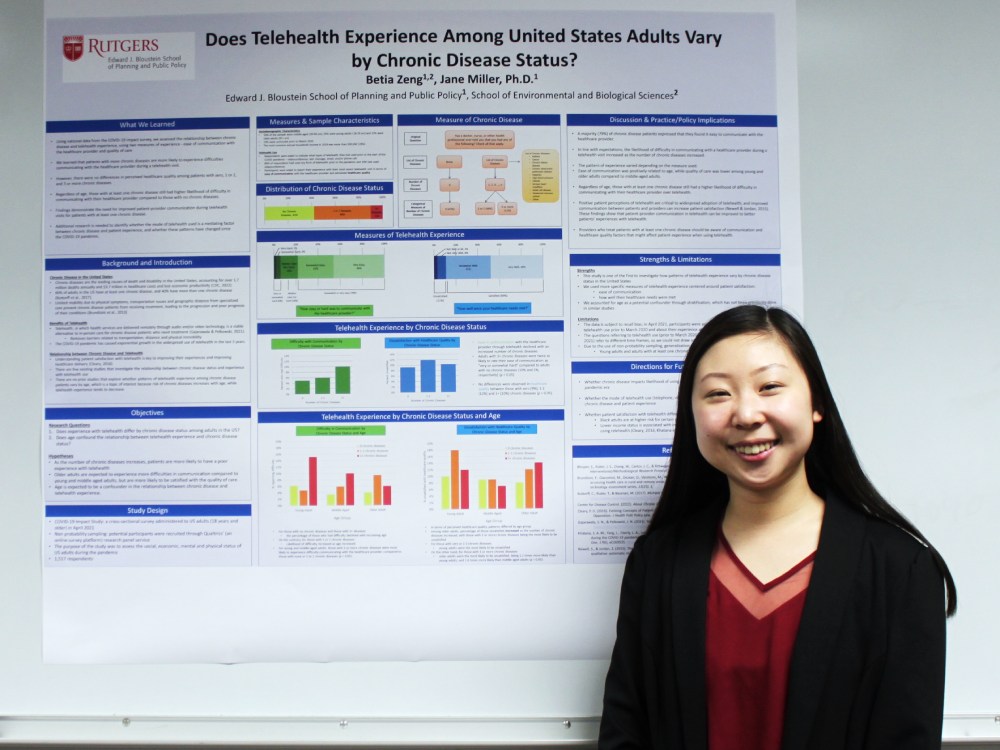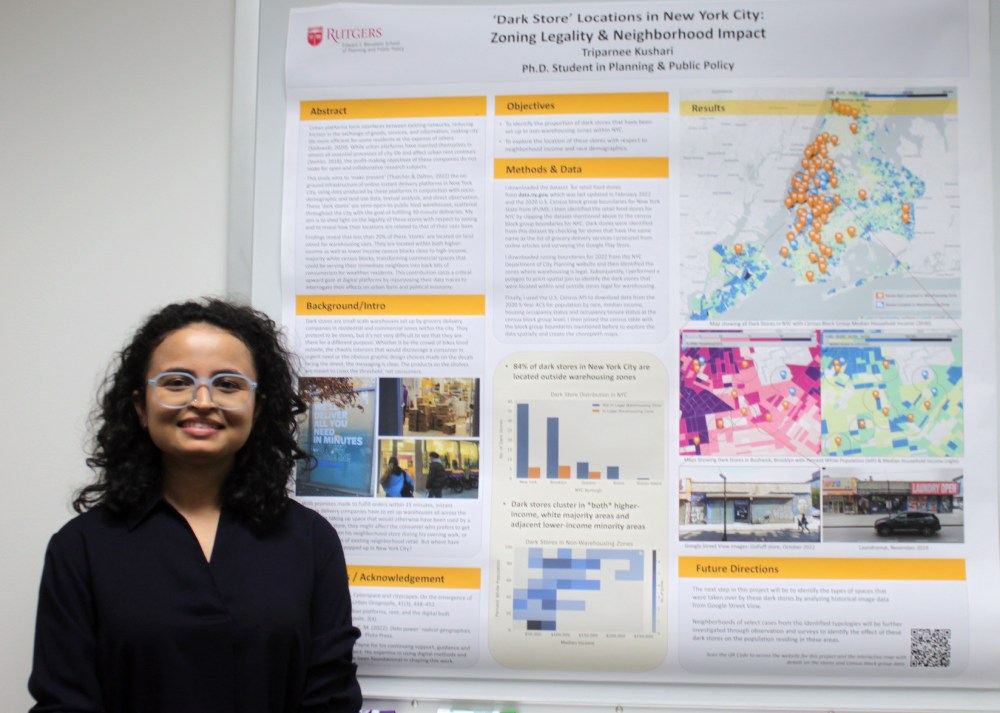The Bloustein School’s 2nd Annual Research Day took place in person at the Gov. James J. Florio Special Events Forum on Friday, April 21st. The event was an opportunity for Bloustein students, faculty, and staff to showcase their research, receive feedback, and build networks around common research interests.
This two-hour event featured 3-5 minute lightning talks by faculty and staff and a student poster session.
POSTER SESSIONS
See Photo Album
Best Undergraduate Poster Awardee: Betia Zeng

Best Graduate Poster Awardee: Triparnee Kushari

LIGHTNING TALKS
Opening Remarks
Clint Andrews, Professor and Associate Dean for Research
Welcome
Stuart Shapiro, Professor and Interim Dean
Clean Energy Evaluation & Policy Decision-Making Support
Brittney Donovan & Kristine Bacani
The Role of Libraries in Engaging Community and Workforce Skills
Revisiting Integrated Assessment Models: What would Keynes do about climate change?
Place, network, and HIV risk among sexual minority men
Grace Maruska & Khudodod Khudododov
Early Signs of Pandemic Employment Scarring Using the New Jersey Statewide Data System
Everything Comes Down to Poop: Creating an Online Calculator to Estimate the Water Quality Benefits from NJ Oyster Farms
The Digital Economy and NJ State Tax Policy – the Findings
Summary: Implications of the Impact of the Digital Economy on New Jersey State Tax Policy. In 2022 the Bloustein Local Government Research Center and R/ECON were asked by the NJ Division of Taxation to study the policy and economic implications of the “digital economy on state tax policy.” This presentation is an overview of policy implications. Several initial findings are discussed with a full report under development for future release.
Understanding the impact of perceived built environment on active travelers’ stress level using biometrics sensors
Boiling the Frog Slowly
Summary: Increasingly partisan perceptions of neoliberal education reforms and resistance to such reforms from communities they negatively impact have created challenges for some neoliberal reformers. This article uses a case study of the state takeover and dramatic reshaping of the Camden, New Jersey school district to examine how some reformers have responded to those challenges. We find that Camden’s state-appointed superintendents used multiple messaging and framing techniques to diffuse community resistance to unpopular policies. We refer to these techniques collectively as window dressing because they are intended to create a perception of movement away from neoliberalism without actually changing neoliberal policies. These strategies are intended to move public opinion and discourage resistance without having to fundamentally address critiques of neoliberal reform. We posit that neoliberal reformers are likely to expand their use of window dressing techniques in response to a growing rejection of neoliberal education policies, particularly by Democrats and progressives.
